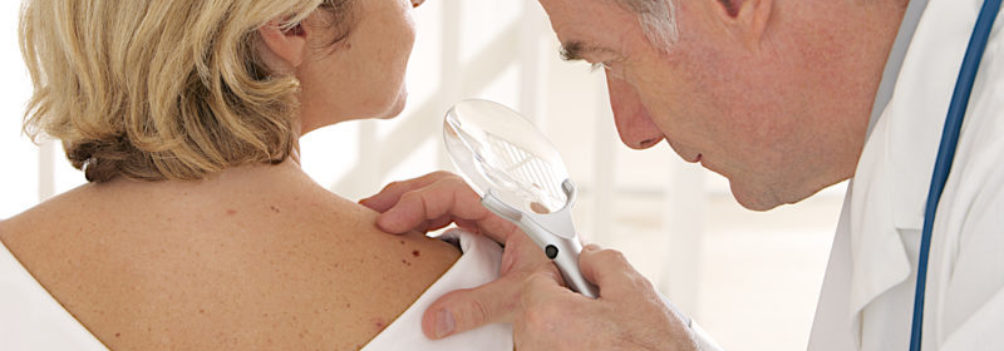Posted by: OPAL Aesthetics in Skin Cancer,Skin Care

May is National Skin Cancer Awareness month. Skin cancer is not selective in its victims. It affects all ages, both men and women. It is considered a lifestyle disease, meaning that our choices in lifestyle put us at risk for developing skin cancers. One in 5 Americans will develop skin cancer during their lifetime; 13 million Americans presently have or have had nonmelanoma cancers. About 800,000 are living with a history of melanoma, which is the most dangerous kind of skin cancer. Shockingly, about 90% of nonmelanoma cancers and 65% of melanoma cancers are associated with exposure to the sun! Taking a few basic steps can reduce your risk of developing skin cancer in your life. Follow these tips to reduce your skin cancer risk:
- Seek the shade, especially between 10am and 4pm when the sun is the strongest. This is when the UV radiation is the most intense. Don’t get burned. The risk for melanoma doubles if you have had 5 or more sunburns in your life.
- Avoid tanning beds. UV radiation from these creates a much higher risk for developing melanomas. Four visits per year can increase the risk for melanoma by 11%.
- Cover up with densely woven clothing.
- Don’t forget your eyes; wear UV blocking sunglasses.
- Use broad spectrum (UVA/UVB) sunscreen. An SPF of 30 with Zinc Oxide gives your best protection. Apply 1 shot glass to your entire body for appropriate coverage 30 minutes before going out. Reapply every 2 hours or after swimming or sweating.
- Keep newborns out of the sun. Sunscreens can be used on babies over 6 months of age but they should be protected by shade and clothing. Children are very sensitive to ultraviolet radiation. One instance of severe sunburn in children doubles their chances of developing melanoma later in life.
- Examine your skin for suspicious moles. Look for asymmetry, uneven borders, multiple colors, larger than typical moles, and anything that’s changed in size, color or shape. See your physician annually for a thorough skin check.
We live in the South so we receive a higher amount of UV radiation than many parts of the country and spend much more time outdoors. You can enjoy our climate and still have fun, just be smart and protect yourself!
– Laser Specialist Judy Paredes, L.M.E.
References: Skin Cancer Foundation, May 2012